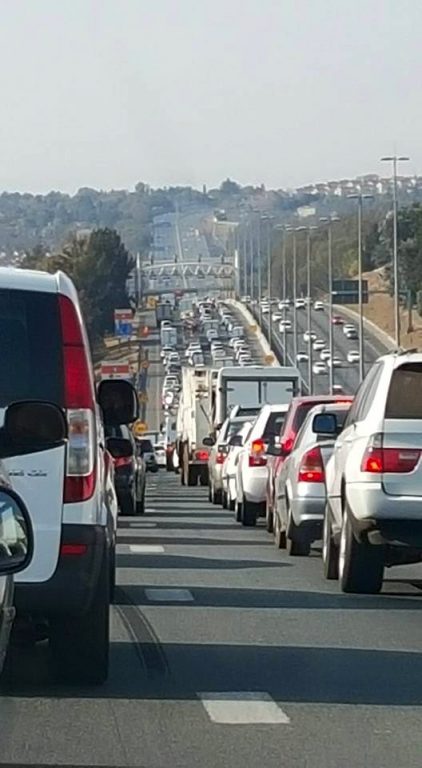New drivers have every reason to be nervous out on the roads. Especially in South Africa, which has such a high accident rate. And when you look at Gauteng, they are one of the highest contributors (almost a 20% contribution) to the motor vehicle accidents (MVA) that happen in this country.
And the sad reality is that it may not be your fault when an accident happens. It could be a byproduct of what another driver or person on the road does that causes you to have an accident. So, for that reason, it’s understandable that there are nervous drivers. But, unfortunately, being a nervous driver doesn’t always help the situation.
So, for all the nervous first-time (or experienced) drivers out there in Gauteng, here are a few tips to keep you calm and, hopefully, bring down the MVA statistics for the province.
Buy a secondhand car
Now, you may be wondering how buying a new or used car makes a difference to how you drive or feel on the roads. But you’ll be surprised. The process of buying a car itself is stressful and you’ll always want to be careful that nothing happens to your investment, regardless of it being new or secondhand.
But, the comfort that used cars have is that they have survived on these roads, have a clean track record of never being in an accident and are reliable on the road. New cars have no history and there’s added pressure on you to keep the history as clean as possible. That’s quite a lot of added stress that you don’t need. At least not while you’re still building your confidence on the roads.
So, head to the country’s capital and browse for reliable, older model and affordable used cars in Pretoria to take some of the stress away. Maybe one with a not-so-powerful engine that you feel safe in and comfortable with controlling.
Make sure you’re comfortable and focused
With all the stress riddling through your body before you’ve even reversed out of your driveway, you need to make sure you’re at least comfortable behind the wheel. Before you drive anywhere, you need to adjust your seat, your mirrors, your steering wheel and feel free from distractions.
It’s your car and you’re the driver. If you have a passenger who is constantly fiddling with the music volume, radio stations, windows or air conditioning, you have every right to tell them to either get out or sit still (depending on your current level of patience and the degree of irritation).
And, when you’re driving alone, you need to turn your phone on silent and put it away in the side of the door, a bag or the cubby-hole so as not to be tempted or distracted by it. In the same breath, you’ll want to keep music or radio volume relatively low in order to be not only visually aware of your surroundings but audibly as well. You won’t be the only one who turns the car stereo off when they drive into a parking lot or try to find the right house on the street. Everyone does it to an extent. And for nervous drivers, the more senses that are alert while driving, the better you’ll feel.
Other distractions include eating, checking yourself out in the visor mirror, having conversations in the car. Following a GPS and even having your window down. As you’re getting comfortable with the act of driving itself, do yourself the favour of limiting extra, seemingly simple, distractions.
Don’t let other motorists rush you
If you have your licence and stick to the rules of the road, you have every right to be on the road. Don’t ever let other motorists rush you or pressure you into making a move you never intended to make or is not even legal to do.
Those are the drivers who cause accidents and take chances. Stick to your road-rule-abiding guts and let them make the move. That way you’re not liable for whatever may happen to them. Just keep an eye on them as you continue to drive, even if they’ve overtaken you. The most difficult part of being a driver is accounting for the driving habits of other motorists on the road.
Start with the roads you know well
As a driver, there’s nothing that sends off stress signals in the body quite like driving new roads does. The fear of driving combines with the fear of getting lost and, in some areas of Gauteng, you really don’t want to get lost.
Before you have an anxiety attack behind the wheel, start by driving the roads you know well. Roads you used to drive with your parents on a daily basis. And, if you aren’t ready for the 120 km/h highway yet, find a back-road route to get you to your destination.
In Gauteng, red-flag roads include the N12 and the R573. It’s good to know where the accident-prone zones are and to try and steer clear of those areas as far as possible. Or, at least be more vigilant than usual when driving through.
How Big of a Threat is Driver Inexperience for Road Safety in South Africa? https://t.co/LuwCBirrZZ #ArriveAlive pic.twitter.com/rncA31BYct
— Arrive Alive (@_ArriveAlive) January 30, 2017
